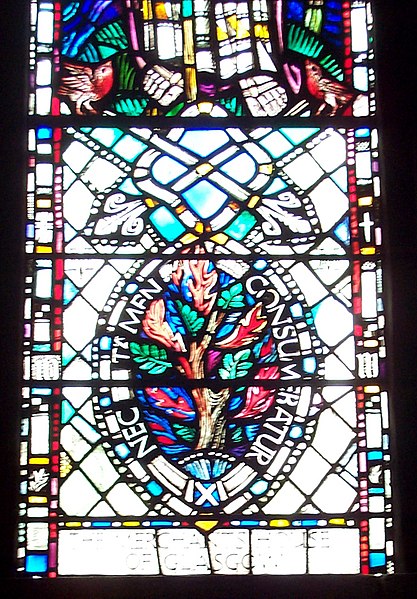The Disruption of 1843, also known as the Great Disruption, was a schism in 1843 in which 450 evangelical ministers broke away from the Church of Scotland to form the Free Church of Scotland.
The main conflict was over whether the Church of Scotland or the British Government had the power to control clerical positions and benefits. The Disruption came at the end of a bitter conflict within the Church of Scotland, and had major effects in the church and upon Scottish civic life.
The Disruption Assembly by David Octavius Hill
Disruption Brooch. Back side.
Parishioners walk out of church in protest at the unpopular appointment of a minister in the parish of Marnoch, Strathbogie in 1841
Mr Dunlop and David Welsh by Hill & Adamson. Dunlop wrote a memoir of Welsh.
The Church of Scotland is a Presbyterian denomination of Christianity that holds the status of the national church in Scotland. It is one of the country's largest, having 259,200 members in 2023. While active membership in the church has declined significantly in recent decades, the government Scottish Household Survey found that 20% of the Scottish population, or over one million people, identified the Church of Scotland as their religious identity in 2019. The Church of Scotland's governing system is presbyterian in its approach, therefore, no one individual or group within the church has more or less influence over church matters. There is no one person who acts as the head of faith, as the church believes that role is the "Lord God's". As a proper noun, the Kirk is an informal name for the Church of Scotland used in the media and by the church itself.
John Knox, who in 1559 returned from ministering in Geneva to lead the Reformation in Scotland.
Stained glass showing the burning bush and the motto "nec tamen consumebatur", St. Mungo's Cathedral, Glasgow.
Iona Abbey in Scotland was founded by Saint Columba.
Church of Scotland Offices, George Street, Edinburgh 2013








